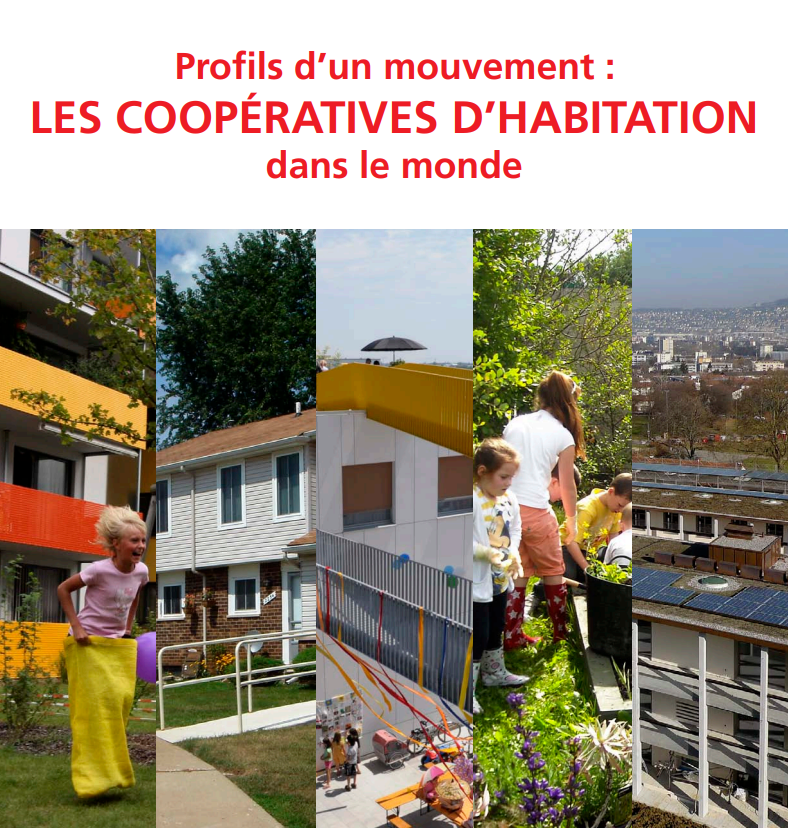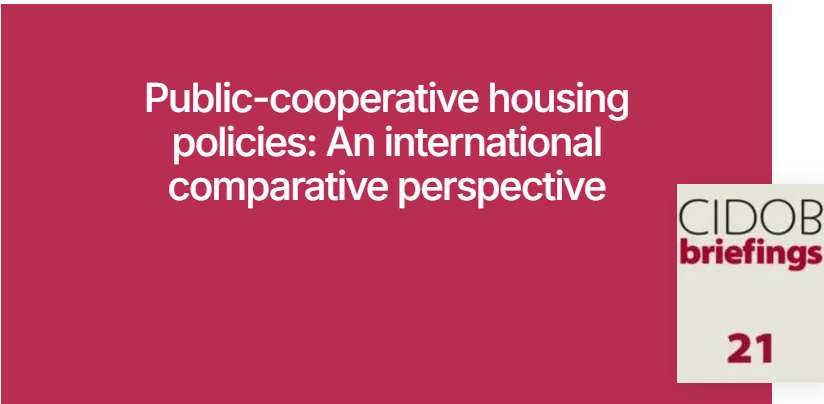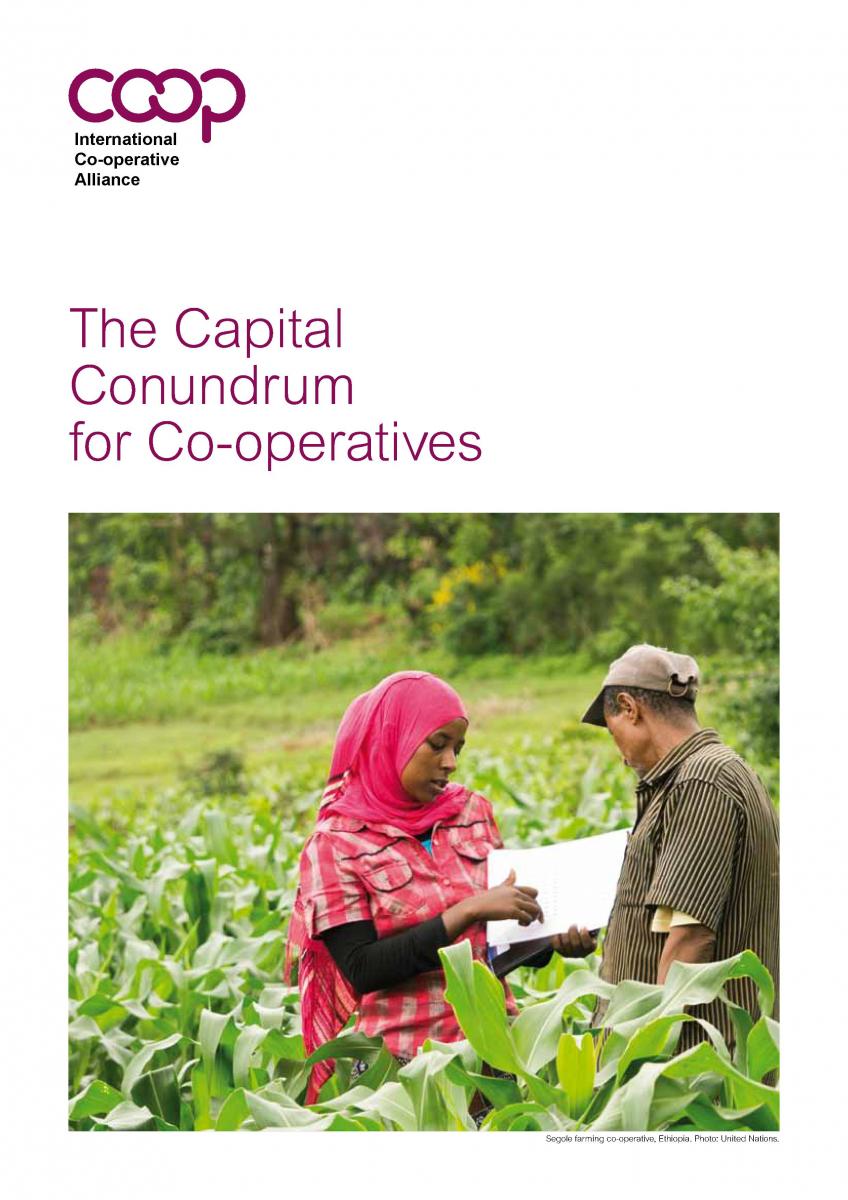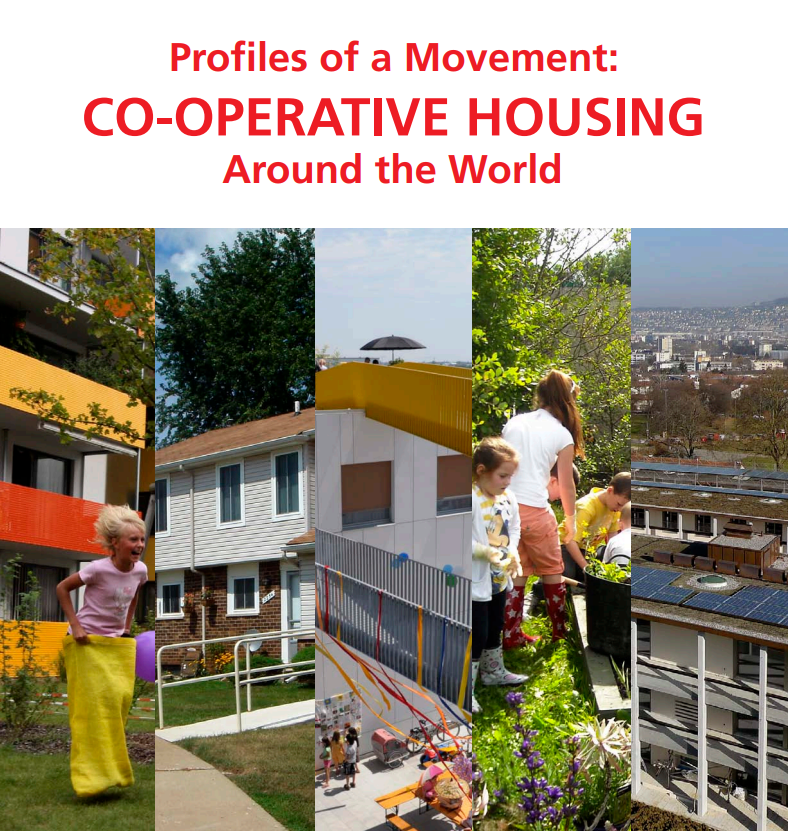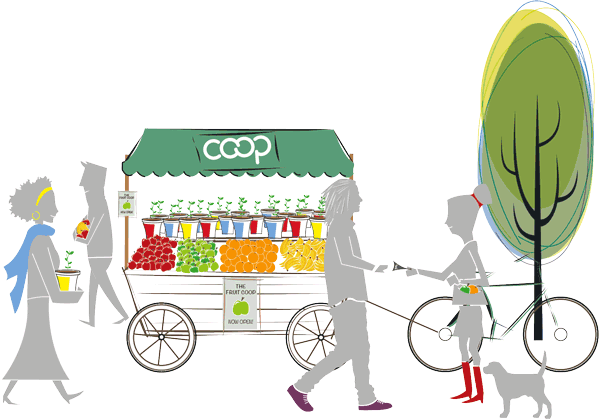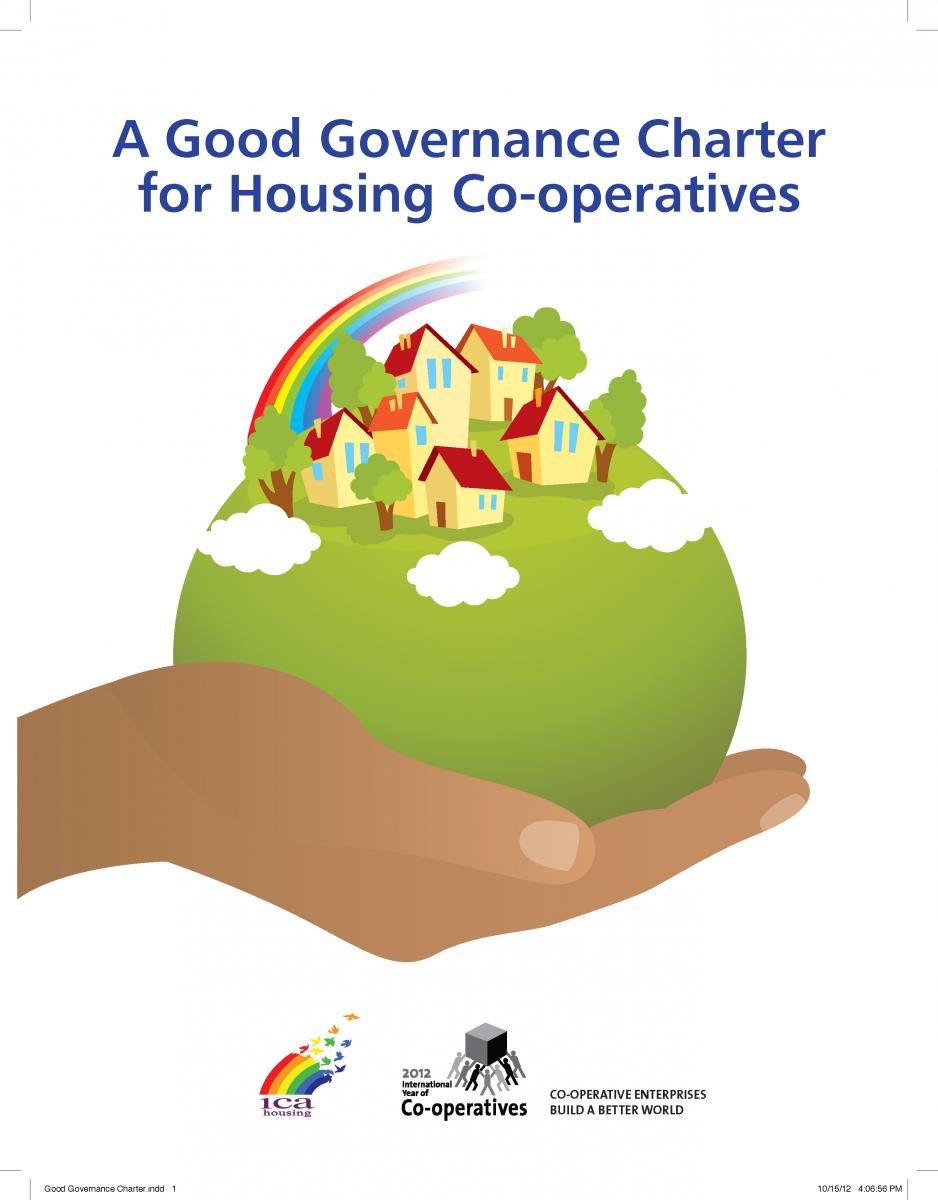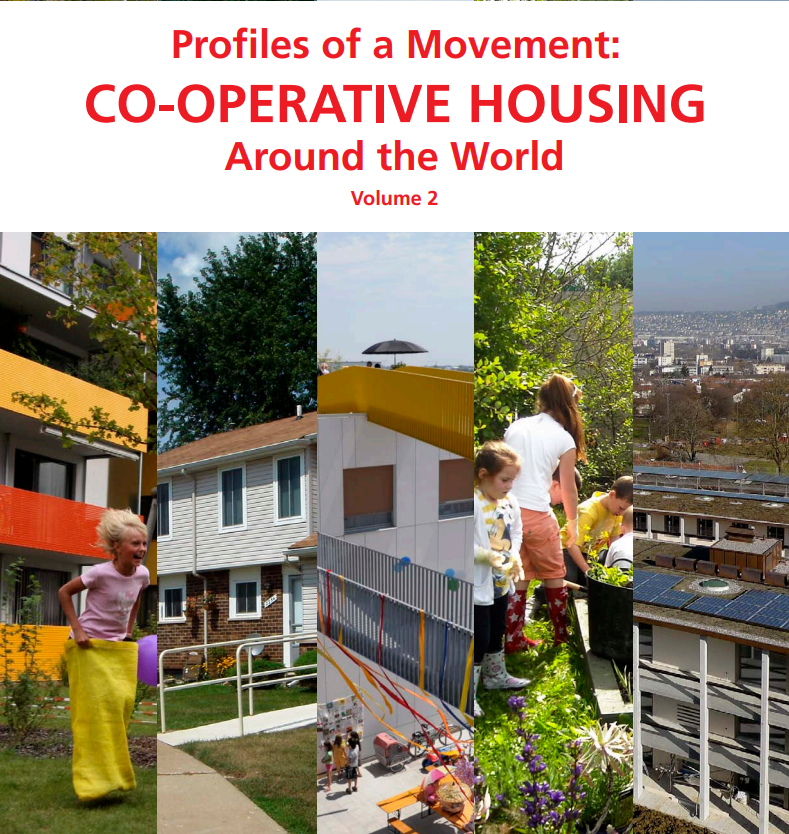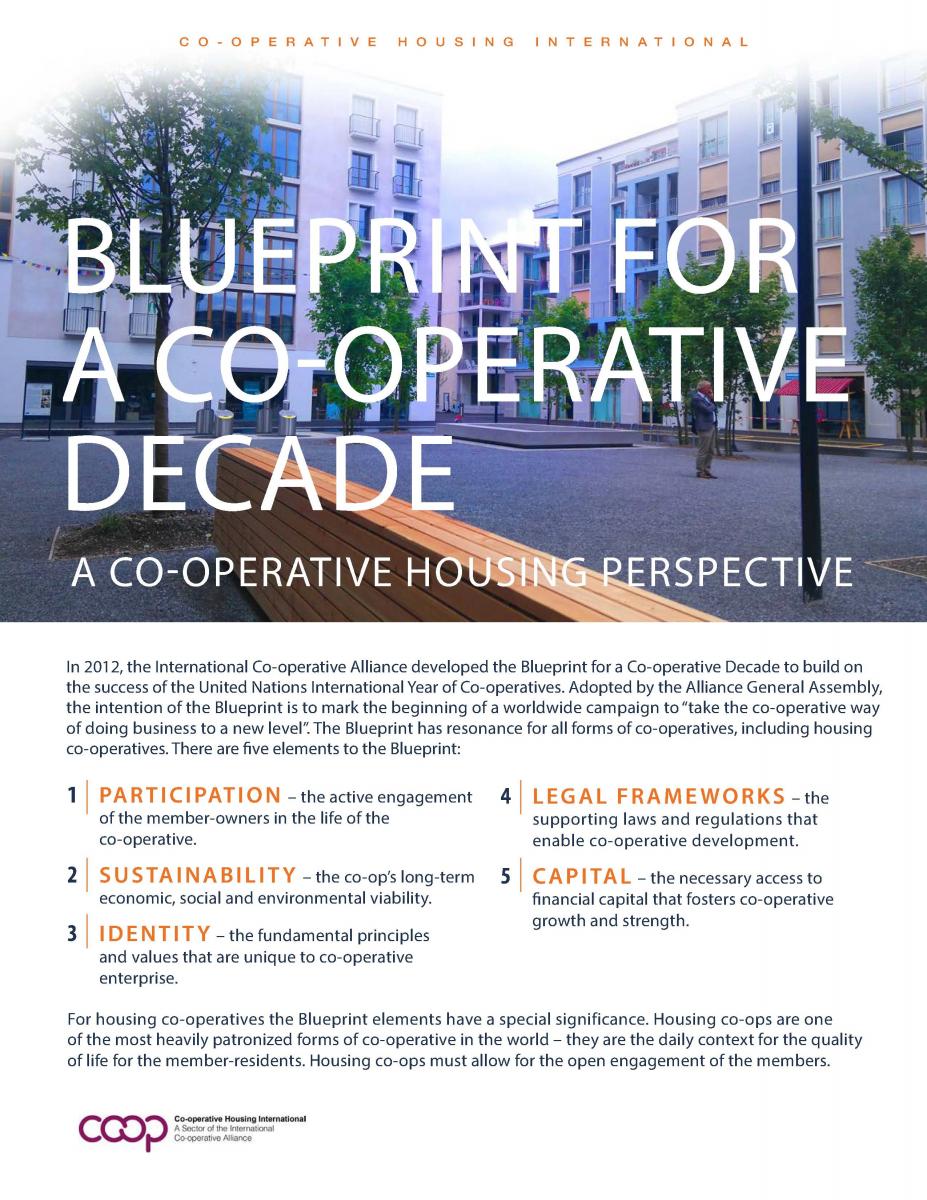About Turkey
Cooperative Housing in Turkey: A Historical and Policy Overview
Cooperative housing in Turkey has played a vital role in addressing the country’s housing needs for nearly a century. The origins of this movement trace back to the 1930s, when cooperative housing emerged as a solution to urban housing shortages and economic challenges. Since then, Turkey’s cooperative housing sector has experienced phases of growth and decline, shaped by legislation, state support, and urban development trends.
Early Beginnings: 1930s to 1950
The first housing cooperative in Turkey, Bahçelievler Housing Cooperative, was established in 1935 by senior bureaucrats in Ankara. This pioneering initiative developed 169 dwellings with financing from the state-owned Real Estate and Credit Bank, founded in 1926.
Initially, most housing cooperatives in Turkey functioned as building cooperatives. They formed solely to construct housing and disbanded upon completion. By 1939, there were only four housing cooperatives, growing slowly to 26 in 1942 and 50 in 1946.
Post-War Expansion and Financial Support
Following World War II, Turkey faced a critical housing crisis due to rapid urbanization, limited financial resources, and soaring land prices. Until the 1950s, only high-ranking state officials could afford to form housing cooperatives.
A significant turning point occurred in 1952 when the Social Security Organisation began financing cooperative housing for low- and middle-income groups. Between 1950 and 1965, 374 cooperatives produced 32,862 dwellings—more than 25,000 of which were financed by this institution.
Legal Reforms and Mass Housing Projects: 1960s–1980s
The development of cooperative housing in Turkey accelerated after the adoption of the Co-operative Law in 1969 and the promotion of large-scale housing through the Five-Year Development Plan (1967–1972). During this period, housing cooperatives became the main developers of mass housing in collaboration with municipalities.
The Batikent project, launched by Kent-Koop Union, remains the largest and most notable example. It created around 70,000 homes for approximately 250,000 people, organized under 275 housing cooperatives across 1,035 hectares.
The Impact of the Mass Housing Law (MHL)
In 1981, Turkey passed the Mass Housing Law (MHL), revised in 1984, which catalyzed the growth of the cooperative housing sector. Under this framework:
- The state allocated land specifically for cooperative housing.
- A Housing Development Fund was established, requiring 5% of the national budget for housing development.
- The Housing Development Administration (HDA) distributed housing loans, with housing cooperatives receiving 90% of the funding.
As a result, the number of housing cooperatives surged:
- 131 founded in 1980
- 920 by 1985
- 2,613 in 1987
- A record 167,514 cooperative units built in 1988, making up 35% of all building permits that year.
From 1935 to 2002, Turkey established nearly 70,000 housing cooperatives.
Decline in the 1990s and Policy Shifts in the 2000s
Between 1993 and 2002, cooperative housing in Turkey experienced a sharp decline. Key challenges included:
- Withdrawal of state financial support
- Operational inefficiencies within cooperatives
- Escalating land costs
- Declining household savings capacity
The Housing Development Fund was ultimately abolished in 2001.
In 2002, a newly elected government introduced a market-oriented housing policy that excluded cooperatives from receiving public land and financial aid. In 2003, the Emergency Action Plan shifted responsibility to the HDA, focusing primarily on housing for low- and middle-income households—but only aiming to cover 5–10% of national housing needs.

The Role of Mass Housing in Cooperative Development
A defining feature of cooperative housing in Turkey has been its reliance on mass housing production. Cooperatives, either independently or through unions and central unions, have played a leading role in developing large urban areas. These developments have included not only residential buildings but also essential infrastructure and community facilities.
In this model, the state and municipalities served as key partners, providing land—whether developed or undeveloped—and financial credit. Cooperative unions signed formal agreements with local governments, committing to build housing units and accompanying infrastructure according to set guidelines and timelines. Projects typically included schools, kindergartens, health centers, commercial and administrative zones, as well as basic services like roads, electricity, and water systems.
Exclusion from Mass Housing Since 2002
Despite this history of large-scale development, housing cooperatives in Turkey have been largely excluded from mass housing initiatives since 2002. Several factors explain this shift:
- Land Scarcity: Suitable land for large cooperative projects is increasingly difficult to find near cities. Small urban plots, though available, are expensive and unsuitable for mass development.
- Public Land Monopolized by HDA: The Housing Development Administration (HDA), which holds exclusive authority over public urban land, has not allocated any land to cooperative unions since 1998. Instead, this land is either developed directly by the HDA or sold to private developers, bypassing the cooperative sector altogether. This is notable given that nearly 50% of land in Turkey is public property, giving the state considerable power to guide sustainable, inclusive housing—if it chooses to do so.
- Urban Renewal Policies: Recent urban renewal and squatter transformation initiatives are managed through partnerships between the HDA, municipalities, and private contractors. These mass redevelopment efforts explicitly exclude housing cooperatives from participation.
Rising Costs and Policy Inertia
Housing development in Turkey is also constrained by escalating land development costs, which now account for 40% to 60% of total project costs—far higher than the 20% to 30% typical in Western countries.
For years, representatives of the cooperative housing sector in Turkey have called for structural reforms, including:
- Improved legislation for mortgages
- A dedicated housing finance system integrated with capital markets
- Financial support for low- and middle-income households
In 2007, Turkey passed the Law on the Housing Finance System, which introduced individual mortgages. However, the system benefits mainly high-income groups due to high interest rates and a lack of government subsidies for lower-income families. Cooperatives seeking construction credit remain ineligible for support under this framework.
Worsening Housing Shortages
Turkey currently faces a severe housing deficit. The estimated demand is 500,000 new units per year, yet actual production has plummeted to only 160,000 units annually. The private sector largely targets high-income buyers, and the HDA’s contribution to low- and middle-income housing has been marginal since 2003.
Moreover, housing cooperatives have seen their role shrink dramatically. In the early 1990s, they accounted for 20% of all construction permits. By 2005, their share had dropped to just 6%. This decline in cooperative housing has negatively impacted overall housing production, which fell from 390,400 units in 1990 to just 162,000 in 2002.
Meanwhile, demand has surged, driven by rapid urbanization and the aftermath of the 1999 earthquake. In major cities like Istanbul, Ankara, and Izmir, more than 50% of the housing stock consists of squatter housing (gecekondu) and other informal or illegal dwellings.
Political Climate and Legal Threats
The political climate since 2002 has been openly hostile to the cooperative sector. Key legal and fiscal advantages have been rolled back, including the removal of tax benefits. A new constitutional draft under consideration further threatens the movement by eliminating the state’s obligations to support cooperative development and the right to housing. If adopted, this would strip housing cooperatives of their legal foundation and constitutional protections.
The Case for Reinvestment in Cooperative Housing
The cooperative housing movement in Turkey continues to advocate for:
- Access to urban development land
- Inclusion in housing finance systems
- Restoration of legal rights and state support
The 1999 earthquake underscored the need for high-quality, structurally sound housing. Many housing cooperatives already comply with modern safety standards, and their projects can contribute significantly to safe, sustainable urban development—if given the chance.
Without public backing, however, cooperatives cannot compete in a market dominated by private interests and state-affiliated developers. To meet Turkey’s urgent housing needs—especially for lower-income groups—the government must reengage with the cooperative sector and reestablish it as a central actor in national housing policy.
Key Characteristics of Turkish Housing Cooperatives
Formation and Initial Purpose
Housing cooperatives in Turkey are typically established as construction cooperatives. Their primary function is to build housing units for their members. Upon completion, the cooperative must be liquidated.
Transition to Management Cooperatives
After construction, cooperatives may choose to continue operations by transitioning into management cooperatives. This shift must occur within six months of property title transfers to members.
Property Title Transfer and Legal Requirements
Once the dwellings are completed, the land and unit titles are transferred to individual members. These properties must then be managed under the Flat Ownership Law, which requires the establishment of a management board and governance framework.
Project Development and Facilities
Development Timeline
The average cooperative housing development in Turkey takes at least five years to complete.
Public and Private Facilities
Some social facilities are owned by public authorities from the outset. After construction, remaining facilities may be handed over to municipalities. In some cases, private facilities—like kindergartens—are sold to finance the project.
Membership and Shareholding
Membership Documentation
A deed of membership confirms each individual’s status as a cooperative member. It records the name of the cooperative, the member’s name and address, and their date of entry.
Membership Shares
Each member must purchase at least one share, with the possibility of more, depending on the cooperative’s rules. In 2009, one share was valued at 100.00 YTL.
Transfer and Sale of Shares
Members can leave the cooperative and transfer or sell their shares. The incoming buyer must be accepted by the board of directors and must fulfill the cooperative’s membership obligations.
Eviction and Appeal Process
Cooperatives can evict members based on predefined rules. Evictions are decided by the General Assembly, with the option for appeal to both the Assembly and the courts.
Share Reimbursement Rules
Rules also define how and when a departing member can be reimbursed for their shares. Payment can be delayed up to three years if immediate reimbursement threatens the cooperative’s financial health.
Governance and Decision-Making
Budget and Contributions
Members pay annual contributions based on a budget approved by the General Assembly. This budget must cover all operational and construction-related expenses.
Role of the General Assembly
The General Assembly is the cooperative’s highest authority. No contract or agreement can override its decisions.
Voting System
Each member has one vote, regardless of the number of shares held.
Auditing Requirements
An auditing committee, either internal or external, must be elected to oversee the cooperative’s financial and operational integrity.
Rights During Development
Before project completion, members can withdraw from the cooperative or transfer their rights to another individual.
Financing of Housing Cooperatives
Historical State Support (1984–2001)
For 18 years, the Housing Development Fund (HDF) provided financial support to housing cooperatives through subsidized mortgage loans. Members applied via their cooperatives, and loans were repaid after construction and title transfers. Subsidies covered the difference between bank interest rates and inflation. This system helped build over 1.1 million homes, with 942,501 developed by cooperatives.
End of State Financing (Post-2002)
In 2002, the HDA changed its priorities and ceased financial support for cooperatives. As a result, cooperatives no longer receive state funding or land allocations.
Limited Credit Options
A minor credit program, known as “Complementary Credit,” covers only 5–6% of construction costs and is disbursed late in the project. Due to administrative and banking hurdles, most cooperatives do not use it.
Cooperative Union Pool System
Some cooperatives have created pooled financial systems. These collect payments from members and use the funds to cover project development and infrastructure costs.
Current Financial Challenges
Lack of Affordable Financing
Today, cooperatives have only two financing options: member contributions or commercial bank loans. However, high interest rates make loans unaffordable for most low- and middle-income families.
Limited Access for Low-Income Groups
Without government subsidies, only wealthier individuals can afford to join housing cooperatives. The financial burden has shifted entirely to members, restricting access to cooperative housing for the broader population.

Legal Framework
The legal instruments for the co-op housing sector are:
- The Co-operative Law first adopted in 1969 and amended several times sets the organisational rules, including their business conduct
- Turkish Trade Law (Commercial Code) oversees implementation of the Co-operative Law
- Main rules/contract/mutually promising signed at the beginning/foundation of the cooperative by at least seven members
- Law of Mass Housing
- The Condominium Law / Flat Ownership Law regulates housing estates, including housing co-operatives
- Physical Development Planning Law
- Laws of the Municipality and Laws of the Metropolitan Municipality
The Cooperative Housing Movement in Turkey
Structure and Scale
The Turkish cooperative housing movement is organized into a three-tier structure. As of the most recent figures, the sector includes:
-
54,996 housing co-operatives
-
1,985,076 individual members
-
383 housing cooperative unions
-
2 central unions: TÜRKKENT and TÜRKKONUT
While housing cooperatives are encouraged to join unions, membership is voluntary. Under the Co-operative Law, unions are authorized to audit their member cooperatives.
Role of Housing Cooperative Unions
Housing cooperative unions offer essential support services throughout the development process. These include:
-
Technical guidance on planning, tendering, and construction
-
Construction management assistance
-
Auditing and oversight
-
Capacity-building and training
Unions play a crucial role in ensuring projects are carried out effectively and in accordance with cooperative rules and legal standards.
TÜRKKENT – Central Union of Turkish Urban Co-operatives
Founding and Purpose
TÜRKKENT, established in 1988, is one of Turkey’s two central unions for housing cooperatives. It has historically been the largest of its kind. Its mandate includes:
-
Protecting the interests of member housing cooperatives
-
Supporting their development and operational effectiveness
-
Promoting the sustainable growth of the urban cooperative housing sector
Impact and Reach
Since its founding, TÜRKKENT has supported the construction of over 250,000 dwelling units through its affiliated unions across various regions.
The TÜRKKENT General Assembly is composed of representatives elected by each member union’s own assembly. Representation is proportional, based on the number of individual members within each union.
Representation and Services
TÜRKKENT provides services in 12 provinces, offering:
-
Technical and administrative support to unions and their member cooperatives
-
National-level policy advocacy
-
Representation in international cooperative forums and networks
Resources Tagged "Turkey"
L'habitat coopératif offre des logements abordables à long terme, gérés par les résidents, avec des avantages sociaux, économiques et environnementaux avérés. Malgré son impact mondial, ce secteur reste méconnu.Read More
Financing and Development Global Report
Explore public policies supporting cooperative housing worldwide in this comprehensive report. Discover how governments and cooperatives collaborate to create sustainable and affordable housing solutions globally.Read More
Research Global Research Paper
The Commission's final report on Cooperative and Mutual Housing (Bringing Democracy Home) highlighted the need for consideration of the role that cooperative and mutual housing could play in the national housing strategy. The Fina ...Read More
Financing and Development Global Report
Par cette publication, nous souhaitons ouvrir le débat sur le logement en tant que droit fondamental et enjeu métropolitain, en mettant en lumière l’expérience de grandes métropoles et dans l’espoir d’inspirer des idées nouvelles pour aborder cet enjeu absolument fondamental de l’urbanisation moderne.Read More
Advocacy Global
In 2000, United Nations (UN) member states recognised the need to build global partnerships for development and the exchange of expertise as one of the Millennium Development Goals. Across the international development field, part ...Read More
Financing and Development Global
New report: The Capital Conundrum for Co-operatives "The Capital Conundrum for Co-operatives", a new report released by the Alliance’s Blue Ribbon Commission explores ideas and options available to co-operatives that need suitab ...Read More
Financing and Development Global
Financing the development of housing co-operatives is a challenge and more so in time of financial restrictions and uncertainty. CHI members discussed the issue during a seminar held in November 2009 in Geneva. Presentations w ...Read More
Financing and Development Global
The Forest Products Annual Market Review 2013 reports that the development of new refinement processes has led to the production of new and more affordable wood based products such as cross-laminated timber (CLT). The report sta ...Read More
Sustainability Global
Updated Guidance Notes on the Co-operative Principles, edited by David Rodgers, former President of Co-operative Housing InternationalRead More
Governance Global
The ILO views cooperatives as important in improving the living and working conditions of women and men globally as well as making essential infrastructure and services available even in areas neglected by the state and investor-driven enterprises. Cooperatives have a proven record of creating and sustaining employment – they provide over 100 million jobs today; they advance the ILO’s Global Employment Agenda and contribute to promoting decent work.Read More
Legal Global
Cooperative housing offers long-term, affordable homes governed by residents, with proven social, economic, and environmental benefits. Despite its global impact, the sector remains under-recognized.Read More
Financing and Development Europe Report
Student housing cooperatives have become very popular in the USA and many of these housing co-operatives are members of organizations such as NASCO. Unlike a resident who acquires shares at market rates to earn the right to occupy ...Read More
Community Global
The Good Governance Charter for Housing Co-operatives was launched at the ICA Housing Plenary in Manchester in November 2012.It has three parts:A 10-point set of good governance practicesAn interpretive statement for each good p ...Read More
Governance Global
This second volume of Housing Co-operative Profiles focuses on African countries, showcasing the ingenuity and commitment of cooperators working under difficult conditions. It offers insights into the legal, financial, and historical contexts of housing co-ops, aiming to inspire broader adoption of the model as a solution to the global housing crisis.Read More
Community Global Report
The Blueprint for a Co-operative Decade is a worldwide campaign to “take the co-operative way of doing business to a new level”. The five key elements of the Blueprint are participation, sustainability, identity, legal frameworks and capital. The Blueprint is particularly relevant to co-operative housing and the Blueprint interpretation for co-operative housing below explains how.Read More
Governance Global
